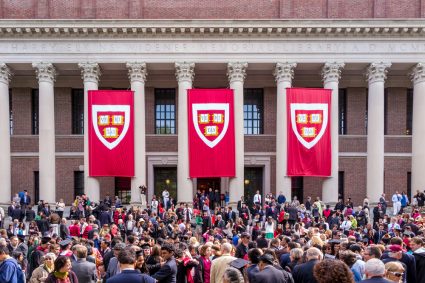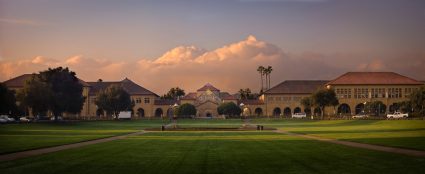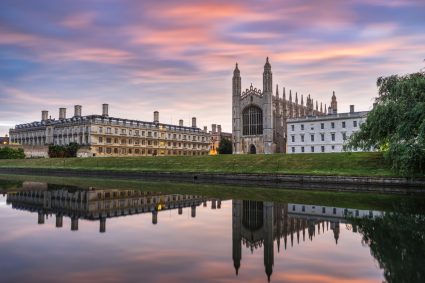Looking to kickstart a career in physics or astronomy? Getting a degree from a well-respected institution is great way to showcase your credentials. With that in mind, we’re delving nto the best universities for studying astronomy and physics…
Physics and astronomy are two fascinating subjects, allowing you to delve into the fundamental laws of the universe and gain a deeper understanding of our position within it. If you aspire to a career in either field, it’s important to attend a highly-regarded university with a strong offering in these areas.
Below, we explore the 10 best universities for astronomy and physics, drawing on the latest edition of the prestigious QS World University Rankings.
1. Massachusetts Institute of Technology
Massachusetts Institute of Technology (MIT) is a private research university in Cambridge, Massachusetts that not only ranks as the best university in the world for studying physics and astronomy, but also the best university for all subjects outright.
MIT is well-known for its engineering and scientific departments, and its alumni include many well-known scientists, engineers, and entrepreneurs like Bill Gates, Mark Zuckerberg, and Elon Musk.

Aspiring to study at the world’s top university? Check out our range of MIT off-campus housing.
2. Harvard University
Harvard University is a private Ivy League research university that, like MIT, is located in Cambridge, Massachusetts.
Harvard is the oldest school of higher learning in the United States, and in addition to excellent physics and astronomy programs, it’s noted for its excellent liberal arts education.

Looking for more options in Cambridge? We also offer Harvard off-campus housing!
3. University of Oxford
Oxford University is the highest European university on this list. It’s the oldest university in the English-speaking world, having been founded around 1096, and is known for its academic excellence and beautiful campus in the city of Oxford.
This prestigious has a long list of famous alumni, including the likes of Oscar Wilde, Tim Berners-Lee, J.R.R. Tolkien, Steven Hawking, and Bill Clinton.

Heading to the UK for your studies? Check out our University of Oxford accommodation.
4. Stanford University
Stanford is a private university in the San Francisco Bay Area of California. Located near the world-famous Silicon Valley, it’s known for its entrepreneurial spirit and its strong engineering and computer science programs.
The university, affectionately nicknamed Nerd Nation by its students, is located on one of the largest campuses in the USA.

5. University of Cambridge
Together with the University of Oxford, the University of Cambridge is one of the two most famous universities in the UK and the second-oldest university in the English-speaking world.
Cambridge is known for its strong academic reputation, beautiful campus, and vibrant student life. Its Department of Physics is one of the largest and most respected physics departments in the world, making it an excellent choice for studying astronomy and physics.

Interested in studying here? Explore our University of Cambridge accommodation.
6. California Institute of Technology (Caltech)
Caltech is a private research university in Pasadena, near Los Angeles in Southern California. It’s known for its strong physics and astronomy programs, and its alumni include notable scientists like Albert Einstein and Richard Feynman.
Caltech is a fairly small university, with only just over 2,000 students on a beautiful campus, creating an intimate setting for your studies.

7. University of California, Berkeley (UCB)
The University of California, Berkeley is another world-class university in the San Francisco Bay Area. Unlike its neighbor and rival, Stanford, UCB is a public university.
UCB’s Department of Physics is held in high regard, offering a wide range of undergraduate and postgraduate programs in physics, astronomy, and astrophysics.
The department is home to world-renowned faculty and has a strong track record of producing top-quality research.

Considering applying to the university? Take a look at our UC Berkeley student housing.
8. ETH Zurich
ETH Zurich in Switzerland is the highest-ranked university on this list outside the USA and UK
It’s known for its strong engineering and natural sciences programs, being one of the best places in Europe to study science, and its alumni include key figures like Albert Einstein and Marie Curie.
ETH Zurich’s students, faculty, and alumni include 22 Nobel Prize winners, two Fields Medalists, and a Turing Award winner.

9. University of Tokyo
The University of Tokyo is the only university in Asia to make this list. It’s a public research university and a key feature of the Japanese government’s Top Global University Project.
Japan’s oldest imperial university, the University of Tokyo is known for its strong academic excellence and has produced many Nobel laureates.
The university’s alumni and faculty members also include 17 Japanese prime ministers.

Interested in studying in Japan? Check out our University of Tokyo accommodation.
10. Princeton University
Princeton University is another Ivy League school and takes the last spot among the top 10 universities for physics and astronomy. It’s located in the small town of Princeton, New Jersey.
As well as physics and astronomy, Princeton is also known for its strong liberal arts education and its many award-winning scientists, among them no fewer than 75 Nobel laureates.

Choosing the right university
These colleges provide a world-class education in physics and astronomy, with world-class staff and cutting-edge facilities. They also offer extensive research programs, allowing you to undertake cutting-edge study in these areas.
Aside from the top 10 universities for physics and astronomy, countless other institutions offer great programs in these areas. Just make sure to conduct thorough research to find a program that suits your goals and interests.
Below, we run through some of the key factors to consider when choosing your university.

Reputation
Make sure the university has a good reputation for its physics and astronomy programs. You can find this information by looking at university rankings, reading online reviews, and talking to current students and alumni.
Faculty
The faculty is one of the most important factors in a physics and astronomy program. Make sure the university has world-renowned faculty who are actively conducting research in your areas of interest.
Facilities
The university should have state-of-the-art facilities for conducting physics and astronomy research. This includes telescopes, laboratories, and computing resources.
Research
Make sure the university offers research opportunities for undergraduate students. This will give you the chance to gain hands-on experience in physics and astronomy research.
Cost
The cost of tuition, fees, and living expenses should be a factor in your decision. Make sure you can afford to attend the university of your choice.
Final thoughts
Remember, there is no one “right” university for everyone. The best university for you will depend on your individual interests, goals, and financial situation. Do your research, talk to current students and alumni, and visit the campuses of the universities you are considering.
With careful planning, you can find the perfect university to help you achieve your dreams of a career in physics or astronomy. And if you’re interested in another science-based subject, we also have a list of the best universities for biology.
Once you’ve found the university for you, you can start looking for student accommodation. Here at Student.com we list accommodation in hundreds of cities around the world, so wherever you decide to go, you’ll probably find some great properties listed on our site.



